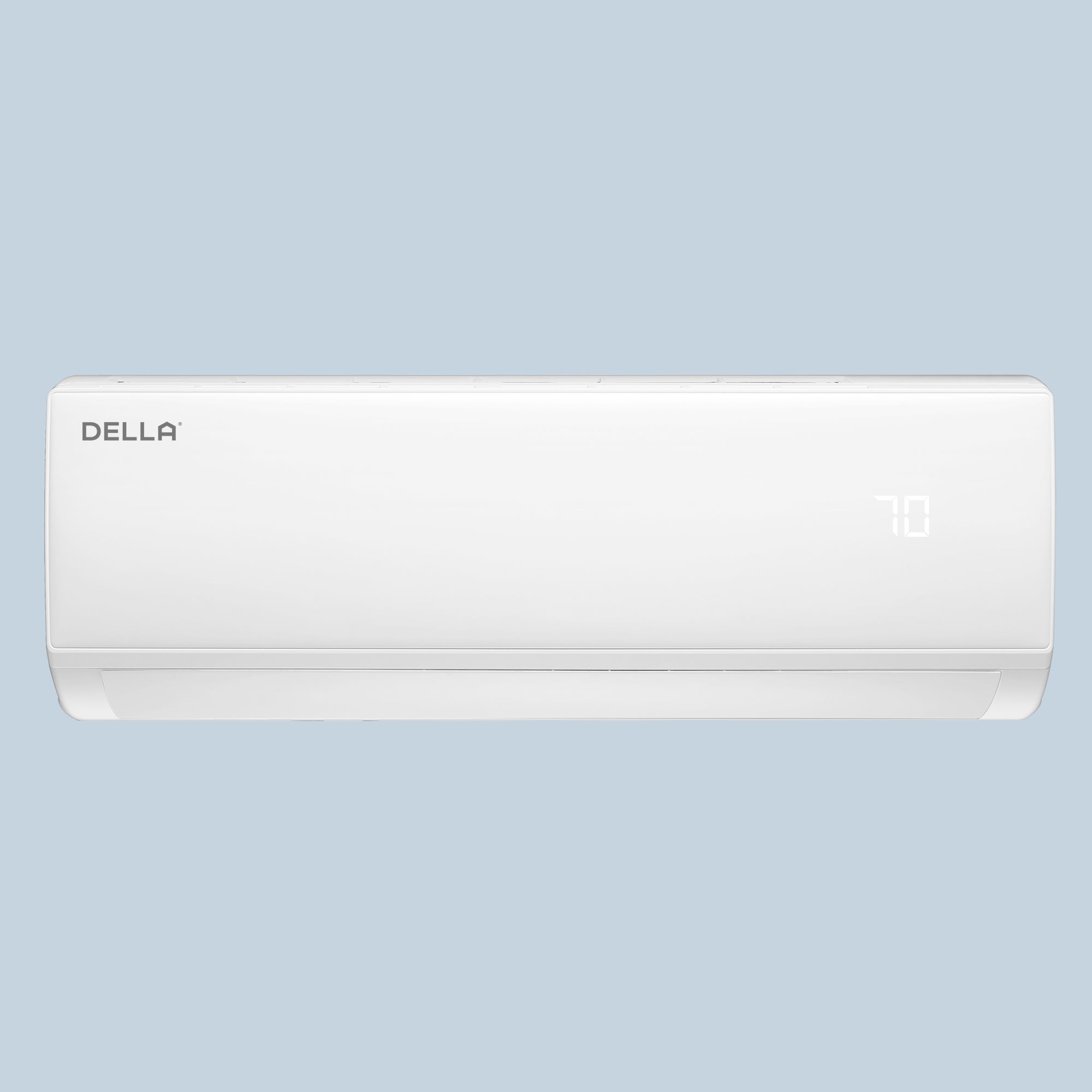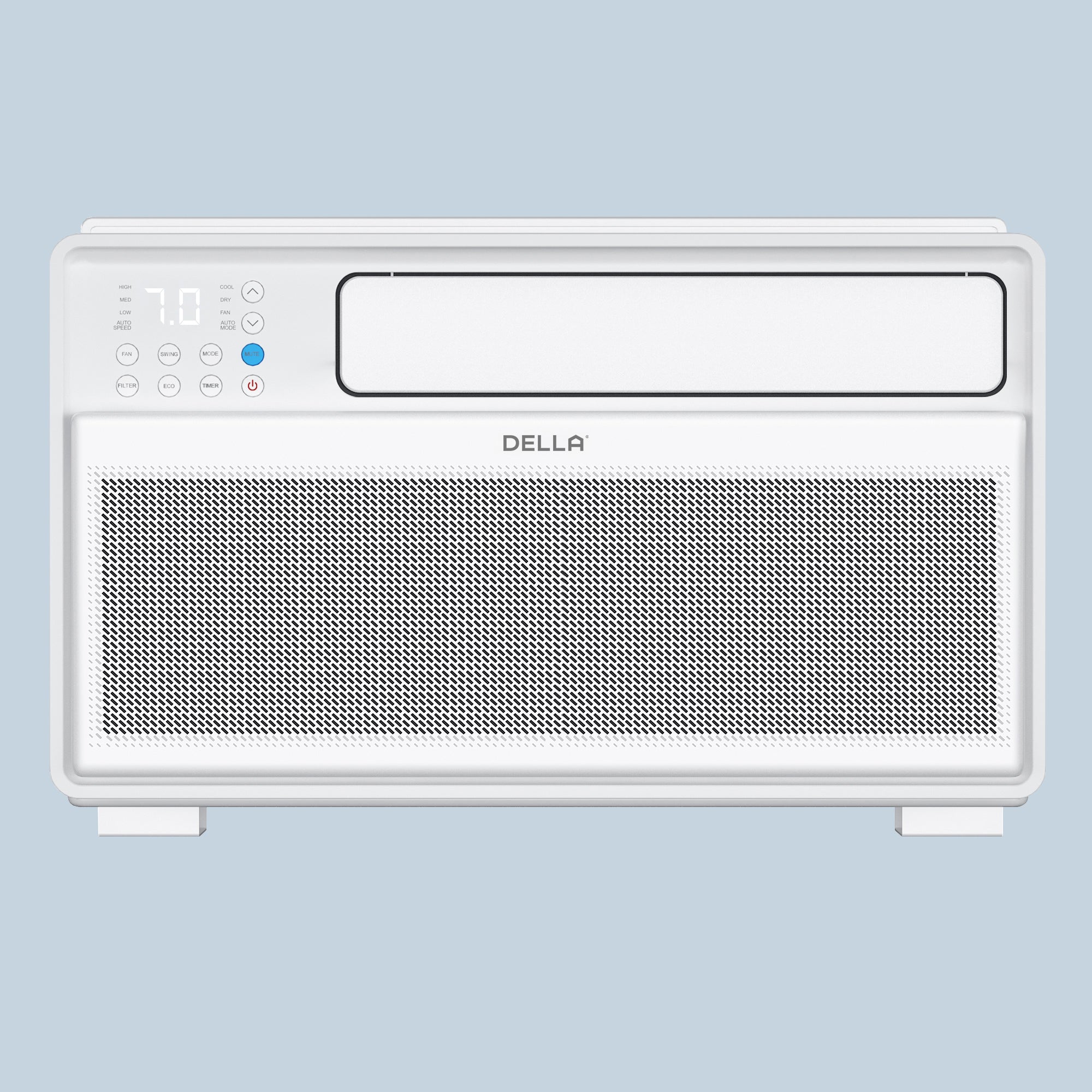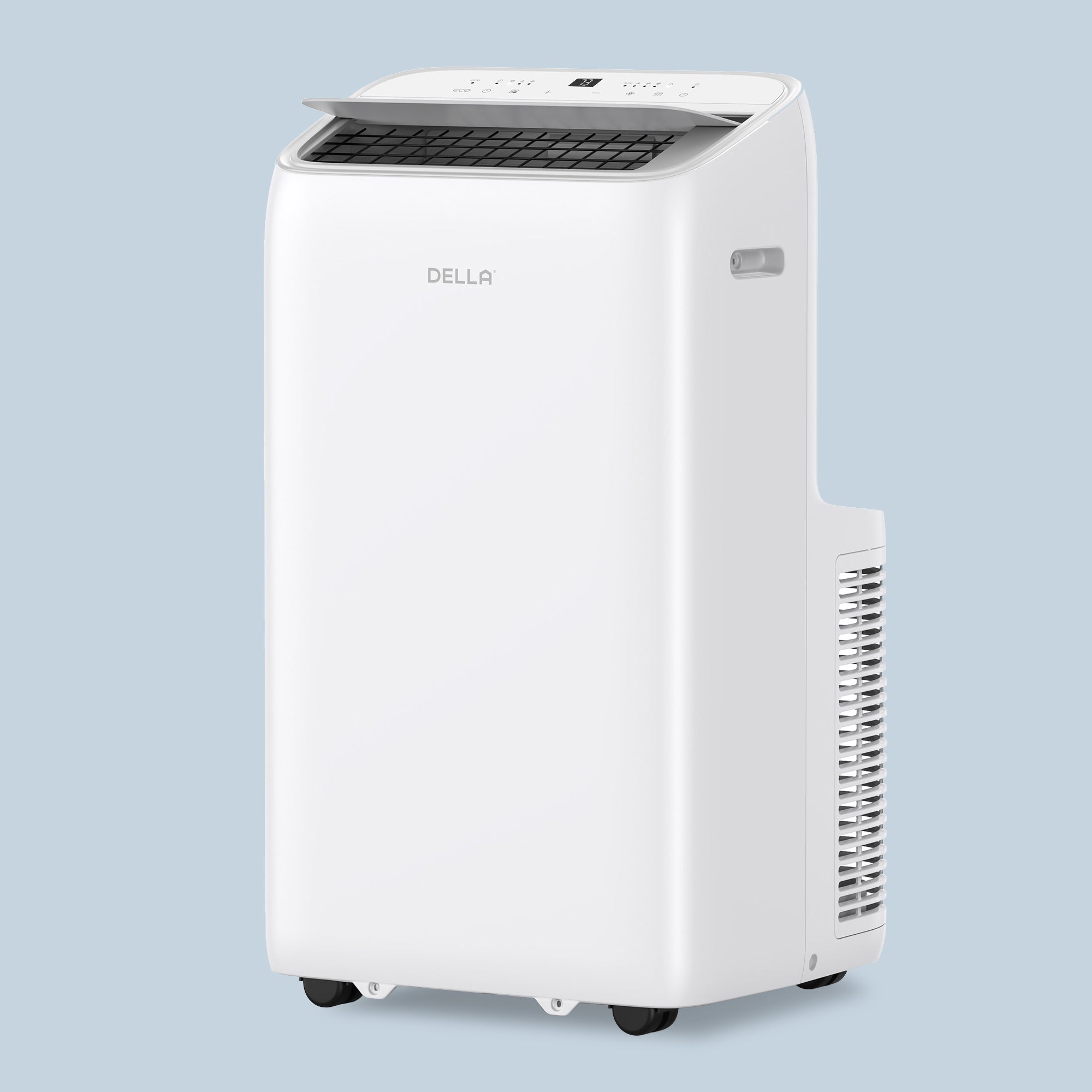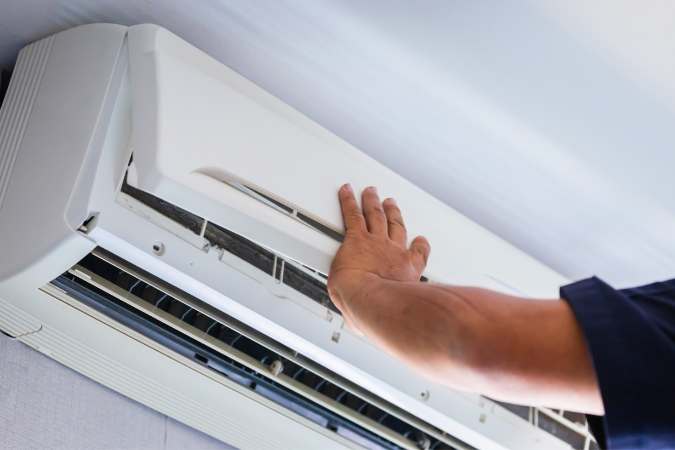When your air conditioner runs but fails to cool, it can be frustrating, especially in sweltering weather. Several common issues could be behind this, and understanding them can help you restore that cooling, refreshing air.
10 Reasons Your AC Runs but Doesn’t Cool
-
Dirty Air Filter
-
Incorrect Thermostat Settings
-
Refrigerant Leak
-
Blocked Condenser Unit
-
Frozen Evaporator Coils
-
Faulty Compressor
-
Electrical Issues
-
Ductwork Leaks
-
Aging or Undersized AC Unit
-
Blocked or Closed Air Vents
Closed or blocked vents restrict airflow, causing uneven cooling. It’s easy to accidentally close a vent while cleaning or arranging furniture. Walk through your home and make sure all vents are open and unobstructed.

Troubleshooting Different Types of Air Conditioners
The causes of cooling issues of each type of air conditioner can vary depending on the model you have. Here’s a breakdown of specific issues and troubleshooting tips for common types of air conditioners:
Portable Air Conditioner Not Blowing Cold Air
Check Placement
Ensure the unit has ample clearance on all sides and is not too close to walls or other obstructions.
Inspect the Exhaust Hose
Make sure the exhaust hose is properly vented outside and securely connected, allowing warm air to escape the room effectively.
Window Air Conditioner Not Blowing Cold Air
Clean the Filter and Coils
Unplug the unit and check the air filter. Clean or replace it if it’s dirty, and wipe down the coils to improve airflow. For those sensitive to noise, cleaning the window AC air filter could also get an ultra quiet AC window unit.
Ensure a Tight Seal
Verify that the AC is sealed tightly in the window frame to prevent warm air from leaking in around the edges.
Mini Split Air Conditioner Not Blowing Cold Air
Clear the Outdoor Unit
Check for any debris, like leaves or dirt, around the outdoor unit and clear it away to maintain proper airflow.
Check Refrigerant Levels
Low refrigerant is a common issue with split ACs, but this requires a technician to refill and inspect for leaks. Also, check that the mini split AC indoor unit’s filter is clean and replace it as necessary.
Central Air Conditioner Not Blowing Cold Air
Verify Thermostat Settings
Make sure the thermostat is set to “cool” mode and the temperature is set lower than the room temperature.
Inspect Ductwork and Vents
Look for visible leaks or blockages in the ducts, and ensure all vents are open and free from obstructions.
Consider Professional Help
If these steps don’t resolve the issue, central AC problems often involve complex components, so it’s best to have an HVAC technician perform an inspection.
Tips for Optimizing Cooling in Your Home
If you want your AC to cool your home more effectively, consider these practical tips:
Use Ceiling and Portable Fans
Fans help circulate the cool air, making rooms feel cooler without lowering the thermostat. If you have a mini split system, learning how to clean mini split units properly can also ensure optimal airflow
Close Blinds and Curtains During the Day
Blocking sunlight prevents heat buildup, which keeps your AC from working harder to cool the room.
Seal Windows and Doors
Leaks let in warm air, making your AC less efficient. Use weather stripping or caulk to seal any gaps and keep the cool air inside.
Limit Heat-Generating Activities
Avoid cooking or running heat-producing appliances during the hottest parts of the day. This reduces extra heat that your AC has to cool.
Keep Vents Open and Clear
Make sure all AC vents are open and free from obstructions to allow cool air to flow freely throughout the home.
Adjust Thermostat Fan Settings
Set your fan to “auto” instead of “on” so it only runs when cooling, which can help your home cool down more efficiently.
Use a Programmable Thermostat
Schedule your AC to start cooling before you arrive home. This way, it doesn’t have to work as hard to cool a hot house.

Conclusion
Addressing common issues and optimizing your AC’s performance can help you enjoy cooler, more comfortable air in your home. If you’re ready for an upgrade or need a reliable air conditioner, explore Della’s range of high-quality units designed to keep your space cool and efficient. Check out Della's latest air conditioner sale for great deals on top models!
FAQs
Should I turn off the air conditioner if it is not cooling?
Yes, it’s best to turn off the AC if it’s running but not cooling. Continuing to run it can strain the system and potentially cause more damage. Turning it off allows the unit to rest while you troubleshoot or call a professional to assess the issue.
What temperature should I set my thermostat to for maximum efficiency?
Setting your thermostat between 75°F and 78°F during the day can help balance cooling comfort and energy savings. At night, you may prefer a lower setting to enhance sleep quality without overworking the AC.
Is it normal for the outdoor unit to make noise while running?
Some noise is normal, but loud or unusual sounds like banging or hissing could indicate a mechanical issue. If you notice unusual noises, it’s best to have a technician inspect your AC to prevent further damage.
Related Reading:
How Many Watts Does a Mini Split Use? Energy-Saving Guide
Cost to Install Mini Split AC System: All You Need to Know in 2024
How to Clean a Window Air Conditioner: A Step-by-Step Guide
How to Clean Your Mini Split AC? Here's What You Have to Know








LEAVE A COMMENT
All comments are moderated before being published.
This site is protected by hCaptcha and the hCaptcha Privacy Policy and Terms of Service apply.